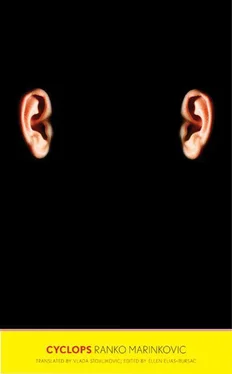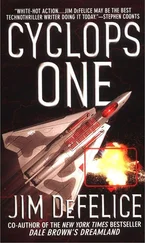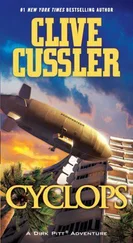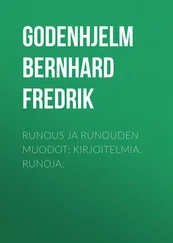“You said so to Don Fernando?”
“To him … and to the rest of them. I respect perpendicularity, human dignity! A huddled fool in a tin bucket hurtling up and down the street — is he still a man? Staring in front of him, his eyes bulging from their sockets like those of a mad believer; he mustn’t turn around or he’ll be turned not into the biblical pillar of salt but into a pile of iron and shit … and he in such a hurry to reach the FUTURE, heh-heh, my dear Eustachius!”
“So mankind ought to relinquish technological progress?”
“Mankind …” Maestro gave a mournful smile. “Perhaps ‘mankind’ would give it up after all, if anyone were to ask. But who ever asks ‘mankind’ anything, Eustachius? ‘Mankind’ has only hands, the energy of its ten fingers. … Mankind does not know what ‘horsepower’ is … unless it’s the power of a four-legged horse. Now do you, Eustachius, know what ‘horsepower’ is? Well, you don’t! You will look it up in the Petit Larousse Illustré when you get home. In this powerful horselike day and age, Eustachius, it’s a shame not to know what horsepower is. HP. Now do you know, you delegate of mankind, what energy is?”
“The capacity …” Melkior was laughing, the night had taken an amusing turn, he thought, “the capacity to perform an action … something like that …”
“Wrong, Eustachius! Sit down!” cried Maestro tutorially. “The ability of a body —yes, body , you silly lad — to perform an action! You must emphasize the body, with a focus on the substance. The soul doesn’t come into it at all — that comes under theology. Here, my body is getting up and walking,” Maestro took several resolute steps, “and that’s ENERGY: a body being capable of performing an action. Right, but what about that invisible thingy which courses through a wire, has no body and is not the soul of a dead tightrope walker … eh? You think this is … no more than a folk riddle?”
Maestro made a rhetorical pause, watching his “lad” with derisive expectancy.
“Even the religion of the Future, dearest Eustachius,” he went on didactically, since his “lad” had failed to come up with an answer, “has its own incorporeal, invisible deity, present in all things, in Heaven and on Earth. Danger of death! Thou shalt not needlessly touch thy God! — That is the first and supreme commandment. Old God-the-Creator can no longer frighten anybody; he used to frighten people naïvely with fire, which firemen can nowadays put out in no time flat. But The Invisible One coursing madmanlike along wires (Maestro gestured at the window with his thumb over his shoulder), well, just try pointing your hose at Him! — He’ll fry you like a fish. There you are, Eustachius, that’s the distinctive feature of the new theology.” Maestro gave a sigh of relief. He had done a meaningful job: winkled out that “new piece of human folly,” that “mystical entity of inestimable importance for mankind” from science’s mystery. … Using persiflage and extravagant metaphors all the while … because he, as everyone knew, did not care a rap for anything in this world. Or the next … if you wanted to know that, too.
He was satisfied. Melkior saw his chin tremble slightly with a happy smile, but he would not let his face glow with visible pleasure. He had to sustain his role of sufferer.
“Demanding sacrifice,” Maestro went on, taking evident satisfaction in the malicious pathos of his own voice and filled with an urge for contrariety. “Put your fingers on Future’s anvil so we can smash them! So we can tear off your arms, fracture your legs, use your skull for a flowerpot! Be a martyr! We shall give your name to the gigantic hydro-temple of our God, ELECTRON! My dear Eustachius! But I’m an atheist! I don’t fall for ditties sung to marching tunes.”
Maestro was laughing bitterly, staring sardonically into Melkior’s eyes as if challenging him. His hair stood up like the plumage of a rooster enraged.
His eyes were quite glazed, demented from drink; his nose featured a cracked crust of dried blood, his face swollen, red, with purple blotches and a dense web of swollen capillaries. Faces like this loom in imagination’s horrible projections before sleep, thought Melkior.
“Please lie down, Maestro,” (if only he would, he’d fall asleep). “I’ll be sitting here and talking to you. Let me open your bed …”
“No, Eustachius,” Maestro raised a resolute hand, “I won’t have it. If I lie down I’ll fall asleep like a foolish virgin. I must be awake, Eustachius, I’m not giving up this night. I want to share it with you like Socrates with … the one who tried to persuade him to flee. But you’re more like the other one … what was his name? … the tearful disciple. Socrates was killed by hemlock and I’ll be killed by the invisible God ELECTRON! What an honor, ha-ha … God strike me! God nothing!” Abruptly he was angry, it seemed. “Nnoo, this is no honor! Some God, coming from resin, amber (the ancient Greeks called it elektron ); we would therefore render it as Gum God, my kind Eustachius. By gum, I’ll come to a sticky end, I will.”
Melkior was alarmed:
“What are you saying, you lunatic?”
“What’s wrong, Eustachius? Heh-heh, afraid of me shaking your faith? We can’t even tie a shoelace any more without believing in something. Don’t be afraid, most kind one, there will always be one sort of bait or another in front of your nose, just close enough to tease your sense of smell, but your teeth will never reach it. Well, go ahead and believe in that Eternal Sausage (Melkior remembered Kurt and shuddered), follow it … but bear in mind: you will never sink your teeth into it.”
“Perhaps I’m not after anything,” Melkior tried to justify himself, at the same time irked: “If you think I’m a fool …”
“You’re no fool, wise Eustachius, but you don’t know how to live in in-dif-fer-ence. ”
“And you do?” said Melkior, irritated.
“Don’t be angry, Eustachius, even heads wiser than ours didn’t know. They’ve left behind temples, children, pyramids, symphonies, books … mummies. You, too, would leave a mummy behind, even if it is only this big, so long as the embryo of your glory reaches the Future in a jar of alcohol. Ambitious types like you imagine …”
“Leave me out of this!” interrupted Melkior angrily: had he not himself thought about …
“All right, not you — the … others, the fu-tu-ristic lot,” conceded Maestro, in a placating tone, “picture the Future as a Final Ceremony, a Grand Parade: everyone will be there, sporting their decorations … and afterward — nothing, just a dream. Everything will stop in incantation, in apotheosis — something like Gundulić’s dream, painted on the stage curtain at the Zagreb Opera House, a tableau vivant, for eternity. Ha-ha, most kind Eustachius, the picture of Judgment Day is every bit as naïve, but at least there’s some dynamic and fear in it, something earnest … Oh why didn’t I have the acquaintance of all men!” sighed Maestro with pathos.
“What use would that be now?” laughed Melkior. “So you could leave them a memory of you?”
“All I wish to leave them now is my undamaged skeleton, Eustachius,” said Maestro gloomily and, it seemed, with reproach, “as stipulated in my contract with the Institute … So that students may study me and become doctors, eventually to become skeletons themselves. There’s equality and fraternity for you, Eustachius!”
Maestro’s head then dropped with fatigue and drink, first to his shoulder, but finding no support there it slid powerlessly forward and thumped against the bare wooden tabletop. The sound was dull and probably painful, but he seemed to feel nothing anymore.
Читать дальше












